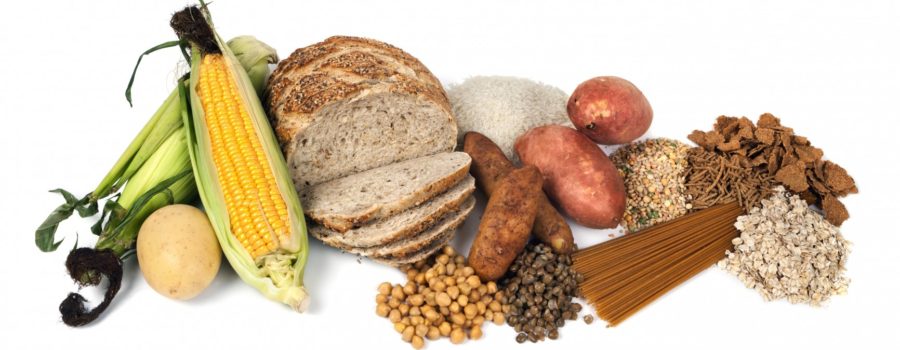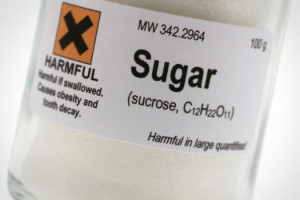Basically: NO. As long as you don’t overindulge, there is nothing inherently harmful about carbohydrates.
For decades, fat was the enemy; today, there’s a new scapegoat: people say carbs are bad for you. Vilifying carbs and insulin seems to get more popular by the year.
Many people believe that the popular glycemic index and the lesser-known insulin index rank foods by their “unhealthiness”. Yet the available research shows that low-glycemic diets, when compared to higher-glycemic diets, have either no effect or only modest beneficial effects on metabolic syndrome factors, even in diabetics. Furthermore, a low-glycemic diet doesn’t always lead to better glycemic control than do other diet patterns.
Similarly, the carbohydrate-insulin model of obesity, which theorizes that obesity is caused by carbs and the insulin response they evoke, is not well-supported by the evidence.
In 2017, a meta-analysis of 32 controlled feeding studies was published. Some of those studies were metabolic ward studies and some were free-living studies, but in each case, meals were provided by the researchers, who wished to ensure that each diet would provide specific amounts of calories and nutrients (within each study, the diets were equal in calories and protein but not in fat and carbs).
So what were the results? Low-fat diets resulted in greater fat loss (by an average of 16 grams per day) and greater energy expenditure (by an average of 26 Calories per day). This would give low-fat diets a fat-loss advantage, though one “so small as to be physiologically meaningless”.
These results are consistent with those of long-term, free-living, randomized controlled trials designed to test a diet’s real-world effectiveness (meaning that the participants were given instructions but left to prepare their own meals). Meta-analyses show that keto, low-carb, and higher-carb diets lead to similar weight loss.
Eating less carbohydrate (especially processed carbs) can be helpful if it helps you eat healthier. But if cutting carbs makes you eat worse or feel worse, or if you can’t stick with the diet, you should consider other options. If you wish to lose weight, what matters is not to replace fat by carbs or carbs by fat, but to end most days on a caloric deficit.
References:
- Holt SH, Miller JC, Petocz P. An insulin index of foods: the insulin demand generated by 1000-kJ portions of common foods. Am J Clin Nutr. (1997)
- Fleming P, Godwin M. Low-glycaemic index diets in the management of blood lipids: a systematic review and meta-analysis. Fam Pract. (2013)
- Schwingshackl L, Hobl LP, Hoffmann G. Effects of low glycaemic index/low glycaemic load vs. high glycaemic index/ high glycaemic load diets on overweight/obesity and associated risk factors in children and adolescents: a systematic review and meta-analysis. Nutr J. (2015)
- Zhang R, et al. Effects of low-glycemic-index diets in pregnancy on maternal and newborn outcomes in pregnant women: a meta-analysis of randomized controlled trials. Eur J Nutr. (2018)
- Evans CE, et al. Glycemic index, glycemic load, and blood pressure: a systematic review and meta-analysis of randomized controlled trials. Am J Clin Nutr. (2017)
- Clar C, et al. Low glycaemic index diets for the prevention of cardiovascular disease. Cochrane Database Syst Rev. (2017)
- Gardner CD, et al. Effect of Low-Fat vs Low-Carbohydrate Diet on 12-Month Weight Loss in Overweight Adults and the Association With Genotype Pattern or Insulin Secretion: The DIETFITS Randomized Clinical Trial. JAMA. (2018)
- Milajerdi A, et al. The effect of dietary glycemic index and glycemic load on inflammatory biomarkers: a systematic review and meta-analysis of randomized clinical trials. Am J Clin Nutr. (2018)
- Wang Q, et al. Effects comparison between low glycemic index diets and high glycemic index diets on HbA1c and fructosamine for patients with diabetes: A systematic review and meta-analysis. Prim Care Diabetes. (2015)
- Han S, et al. Different types of dietary advice for women with gestational diabetes mellitus. Cochrane Database Syst Rev. (2017)
- Ojo O, et al. The Effect of Dietary Glycaemic Index on Glycaemia in Patients with Type 2 Diabetes: A Systematic Review and Meta-Analysis of Randomized Controlled Trials. Nutrients. (2018)
- Schwingshackl L, et al. A network meta-analysis on the comparative efficacy of different dietary approaches on glycaemic control in patients with type 2 diabetes mellitus. Eur J Epidemiol. (2018)
- Ludwig DS, Ebbeling CB. The Carbohydrate-Insulin Model of Obesity: Beyond “Calories In, Calories Out”. JAMA Intern Med. (2018)
- Hall KD, Guyenet SJ, Leibel RL. The Carbohydrate-Insulin Model of Obesity Is Difficult to Reconcile With Current Evidence. JAMA Intern Med. (2018)
- Hall KD. A review of the carbohydrate-insulin model of obesity. Eur J Clin Nutr. (2017)
- Hall KD, Guo J. Obesity Energetics: Body Weight Regulation and the Effects of Diet Composition. Gastroenterology. (2017)
- Johnston BC, et al. Comparison of weight loss among named diet programs in overweight and obese adults: a meta-analysis. JAMA. (2014)
- Bueno NB, et al. Very-low-carbohydrate ketogenic diet v. low-fat diet for long-term weight loss: a meta-analysis of randomised controlled trials. Br J Nutr. (2013)






